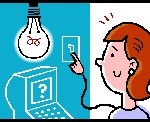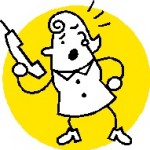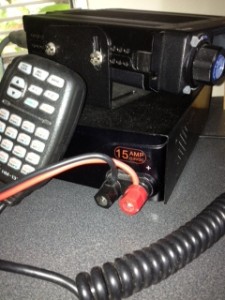 Seasonal scammers view calendars as opportunities to harvest money and information from unsuspecting consumers. It may be getting cold outside, but they are turning up the heat in an effort to collect your hard-earned money and personal account information. Here are some utility scams making their way around the country as the temperatures drop and thermostats are raised.
Seasonal scammers view calendars as opportunities to harvest money and information from unsuspecting consumers. It may be getting cold outside, but they are turning up the heat in an effort to collect your hard-earned money and personal account information. Here are some utility scams making their way around the country as the temperatures drop and thermostats are raised.
1. Pay or Else A phone call demanding immediate payment for an “overdue balance” on a heating bill can be chilling (pardon the pun), especially during winter months. High-pressure tactics and fake threats to turn off service can cause worried customers to purchase prepaid debit cards or use a wire transfer service for immediate payment to keep the heat on. In reality, this is a ruse to steal money and there is no way to recover your funds. If you receive a call from someone claiming to be a representative from your energy provider and they are insisting on payment via those options, hang up and call the number on your utility bill to check the status of your account. Be cautious, careful, and stay in control of your finances.
2. Energy Wise or Lies? A knock on your door can lead to promises of great savings and energy reductions when strangers standing on your stoop offer a free energy audit. They may be vendors fishing for personal information or they could be “casing” your home for future visits when no one is around. If you are interested in improving your energy usage, call your utility company directly and set up an appointment. Ask for ID when someone comes to the door and don’t be afraid to ask questions. Your identity and peace of mind are worth it.
3. Scammed and Slammed! Some salespeople call or visit and claim to be representatives of the “local” electric company, never divulging that they are, in fact, a competitor. They offer discounted rates and incentives as part of a savings package and claim to need some basic details in order to improve your service. In this instance, the information you provide can enable them to switch your account to their company without your knowledge in a ploy called “slamming.” You can end up paying more than you had been prior to the change and be forced into fulfilling a contract you knew nothing about. The best defense is common sense. Don’t give out any personal information to strangers unless you initiate the transaction and are comfortable doing so. Report the “new” company to the Better Business Bureau and to your state Public Utilities Commission.
Unfortunately it is difficult to find scammers who operate behind a mask of anonymity. Like the seasons, we need to change our perceptions about protection and stay proactive when it comes to scam prevention. Be wise and strategize. No one wants to be left out in the cold.








